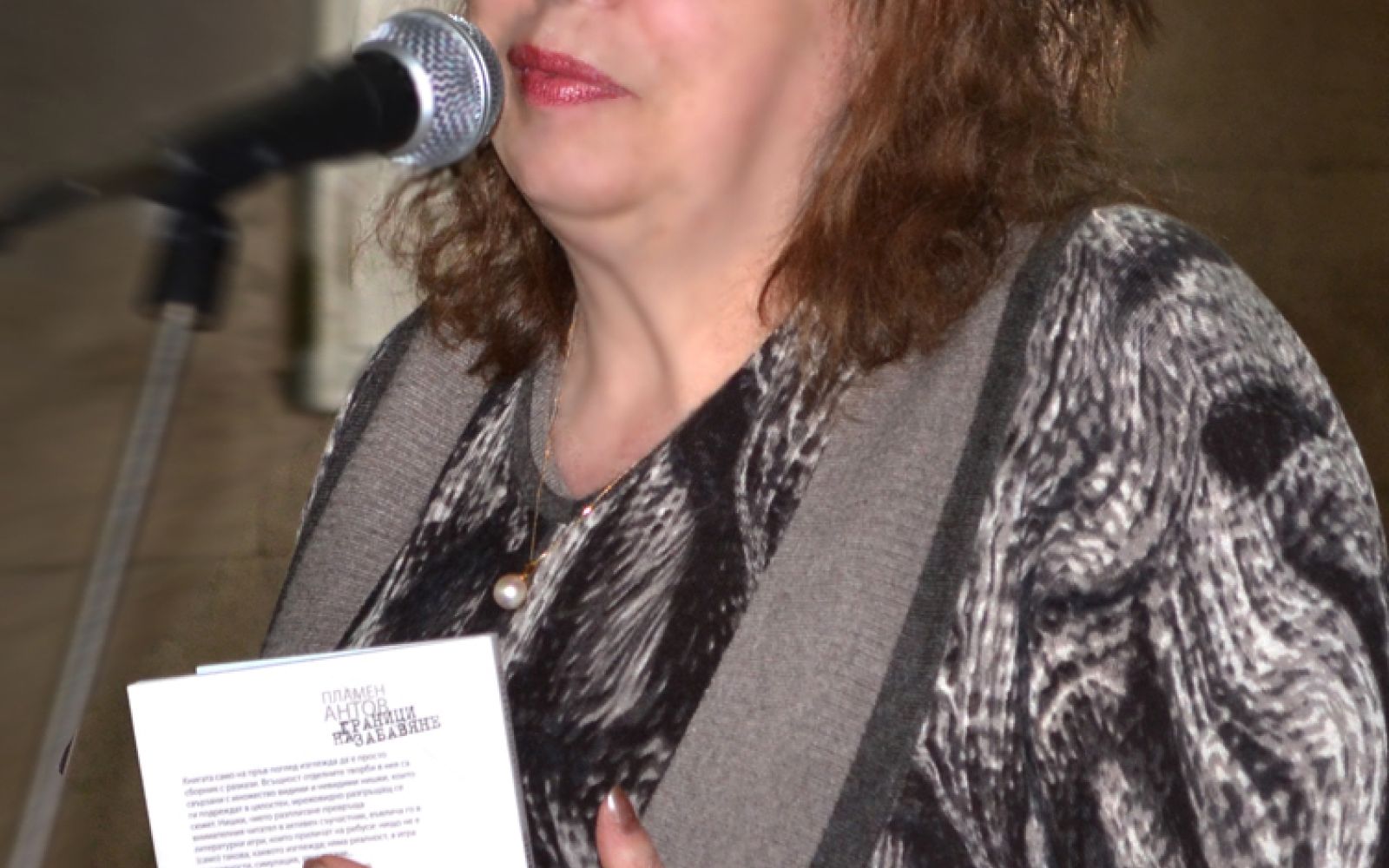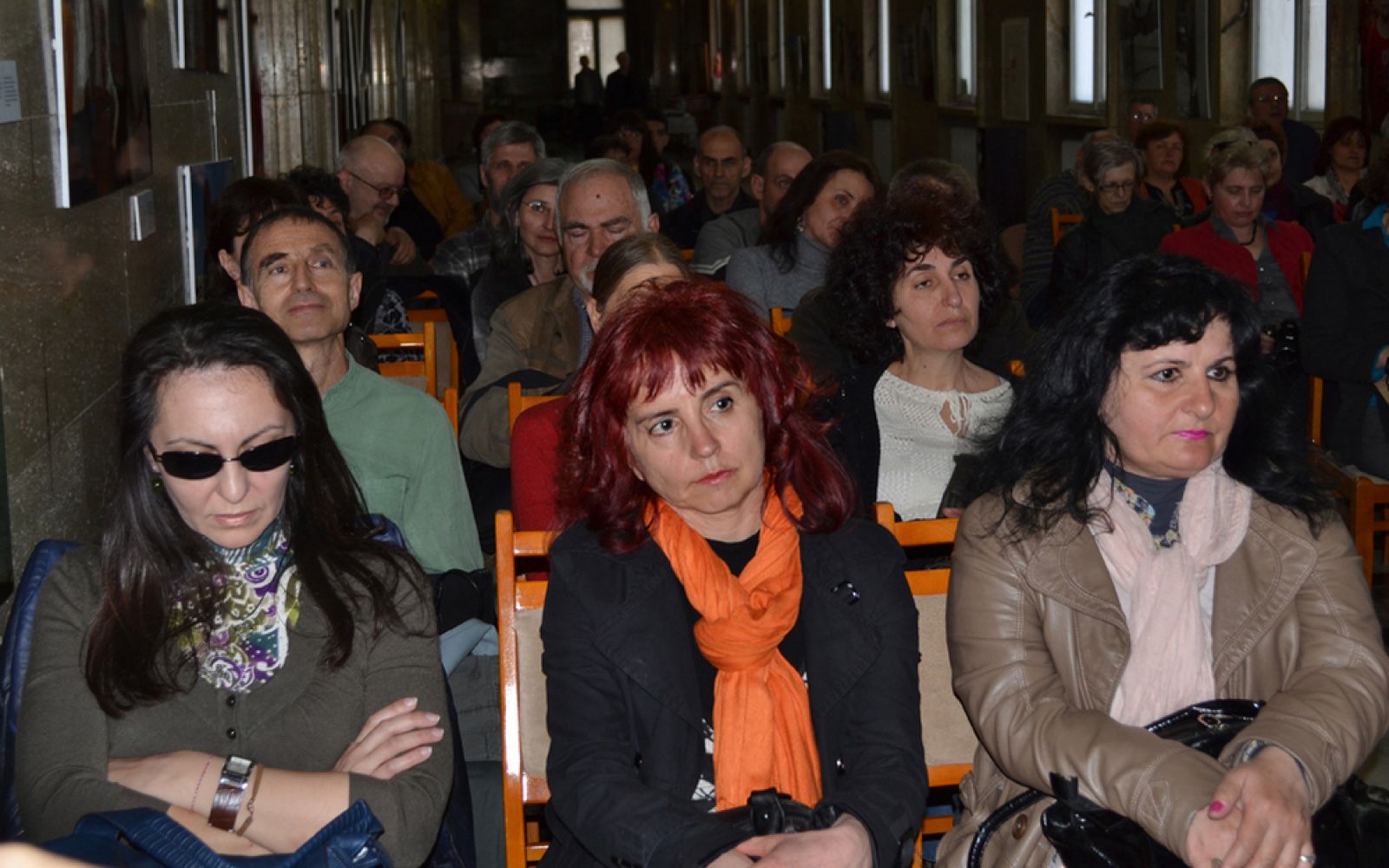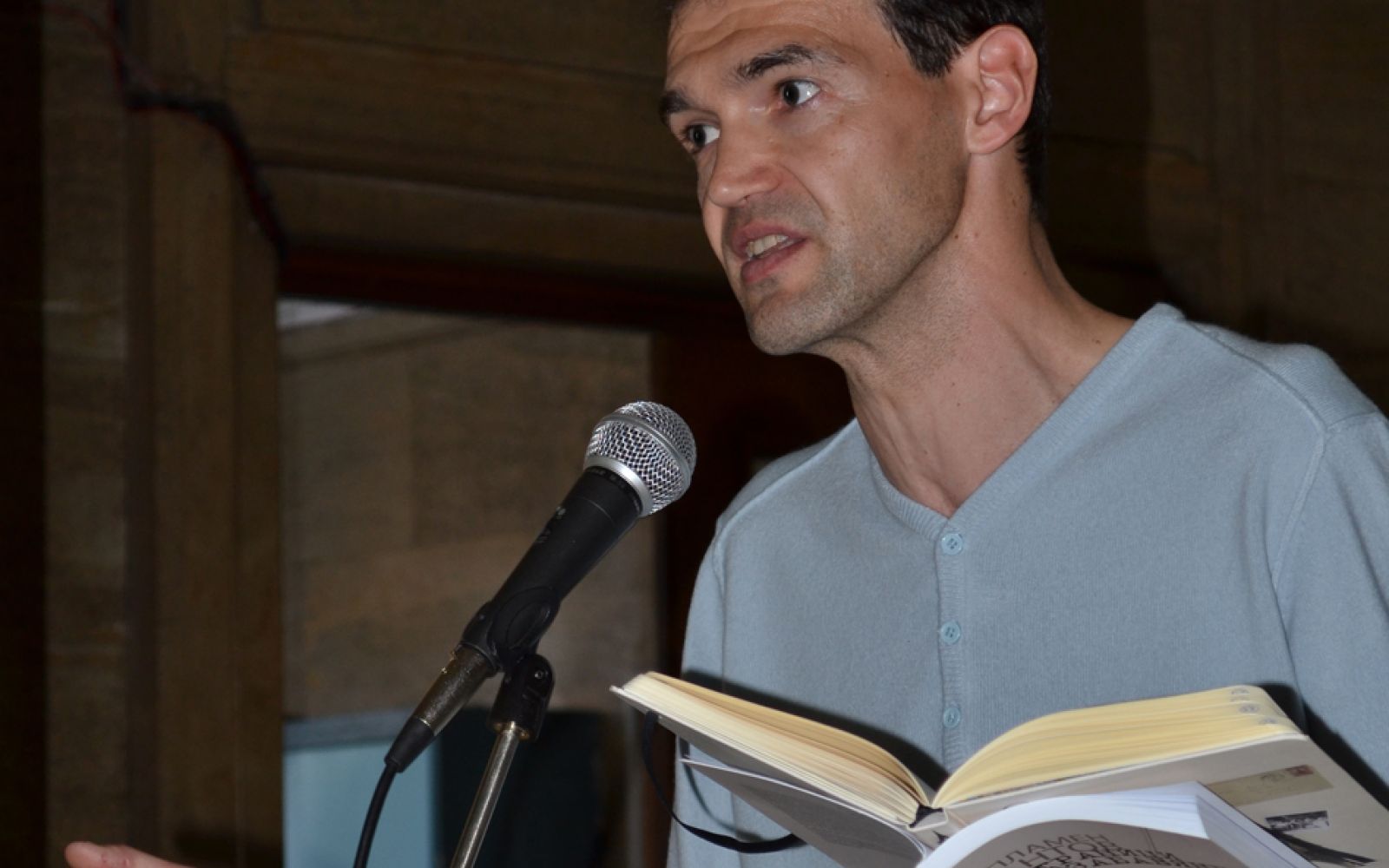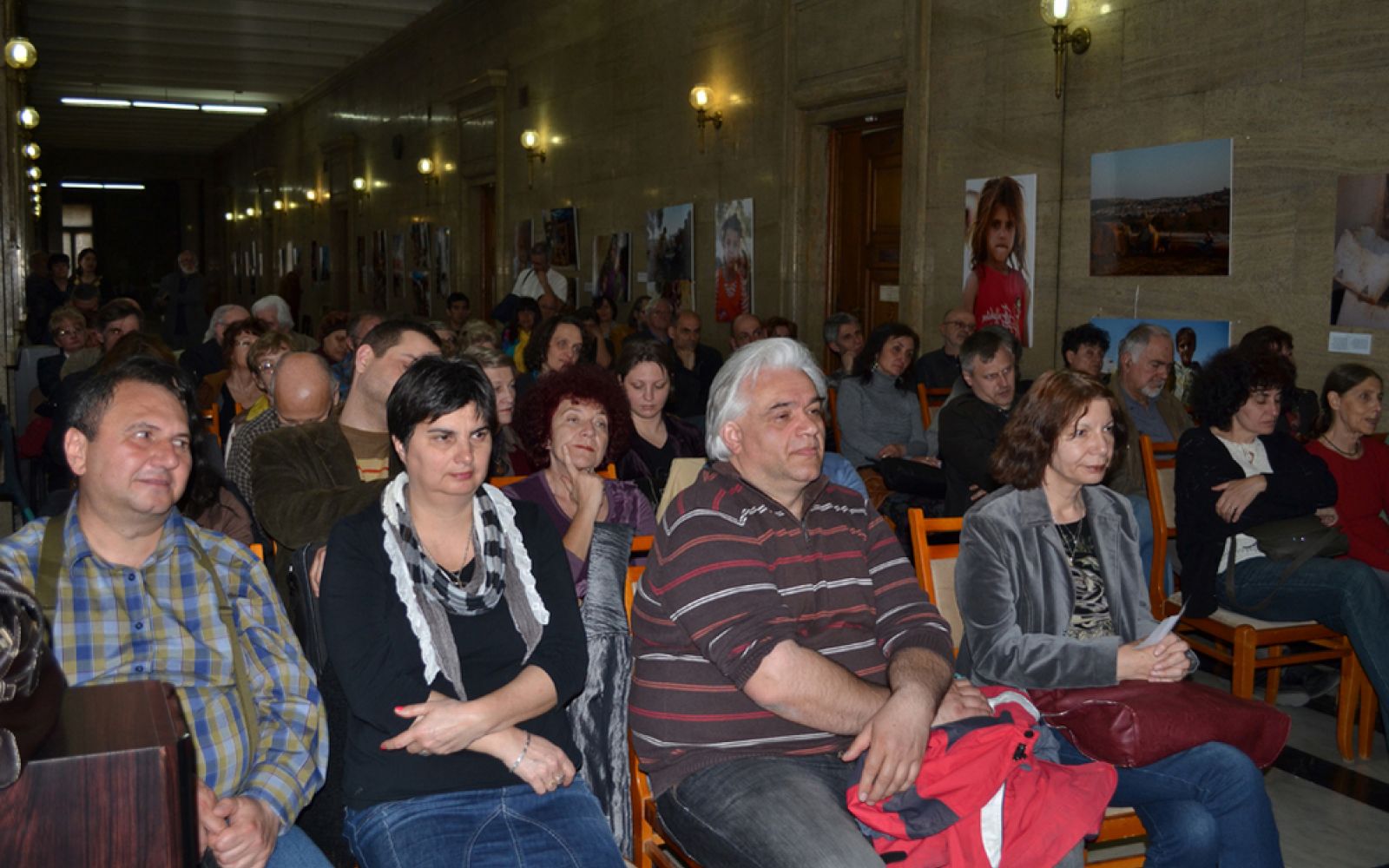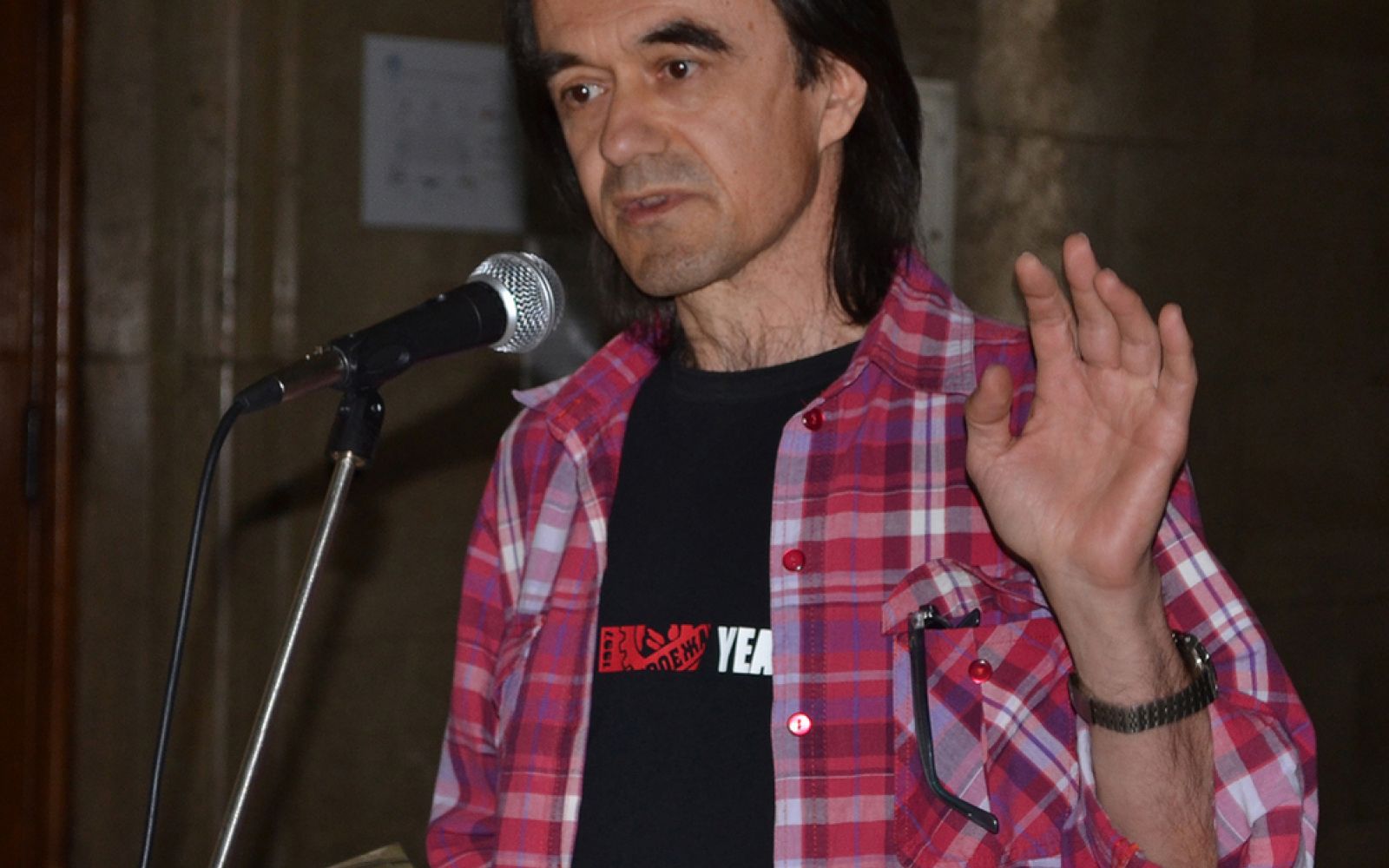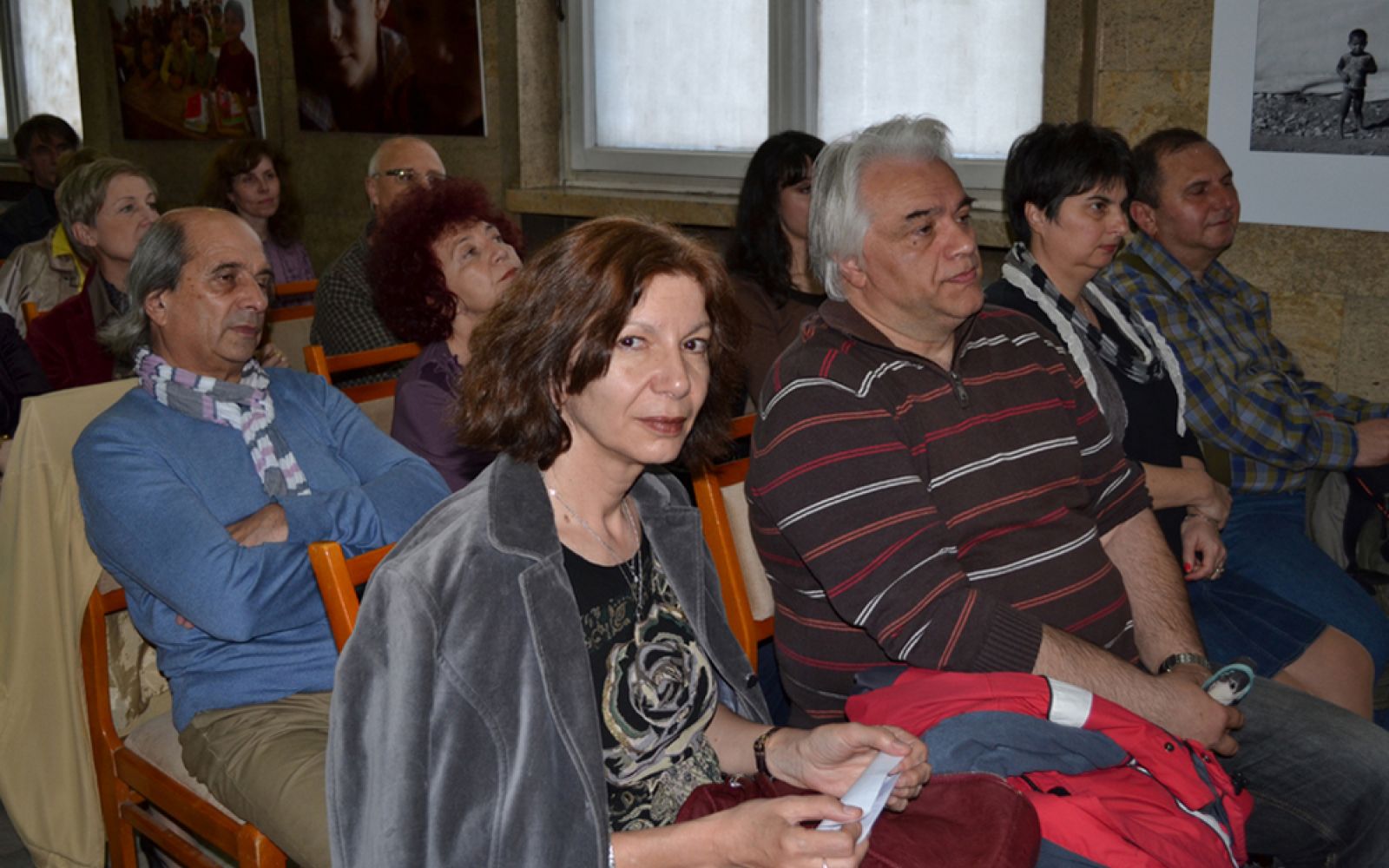On March 31st, in the "St. St. Cyril and Methodius" National Library lobby was presented the new book of short stories by Plamen Antov - "Margins of Delay", issued by "Janet" 45 Publishing house. Prof. Boryana Hristova, Director of the National Library opened the presentation: "As the title indicates, this book should be considered slowly. It somewhat opposes the 'rapid' literature - this is a very slow prose, so slow that even its own appearance is such a dramatic act, which it would prefer to save."
In the presentation of the book Assos.Prof. Boris Minkov stated : "There is a prejudice that a text which draws attention to its own literary nature is difficult to read. How does this self-reflecting literature turn to be more readable than any other? The reader increases within these five stories which create within each other. The book is based on a dichotomy: on one hand is the question of how to write, the unsecure process of writing; on the other – the security of the places. We can clearly see the "Belle Époque" as a base of all stories in the book; the details are very productive, they are also toposes – as also the things we always carry, things we can not leave. Details give rise to new stories" said Minkoff. He read excerpts from the last pages that reflect the struggle with the book – monster, the book which is impossible to complete.
Assos.Prof. Boyko Penchev stopped on the machine - an intermediary between man and the world in Plamen Antov’s five stories. "One of the main questions in these stories is what is primary, what is the reality which rules. The author shows how primary and secondary continuously change places and share content. Antov’s characters resist against the frame, the preliminary hierarchy of life. The tourist is opposed to the traveler, the tourist tries to perform a preliminary set framework. Only lost, the traveler has different and new experiences. Book like this makes us live or at least think and feel like travelers. To delay and to leave the frame is actually the same. How does that happen? First - by disassembling the world. Second - by implementing the detail in new frames. Removed from its context, the detail creates new stories.”
Prof. Boryana Hristova gave the floor to the author Plamen Antov, who stopped on the structure of the book. "The book is developed on two levels - one deals with the mass literature: there is erotics, there is love, there is incestuous love. On the second level the book is purely a self-reflecting book, this is defined in its net composition." "I do not encounter the two types – the slow and the rapid literature. Collection of stories, which I write at the moment belongs to the other type - the type of the rapid literature," said the author.
